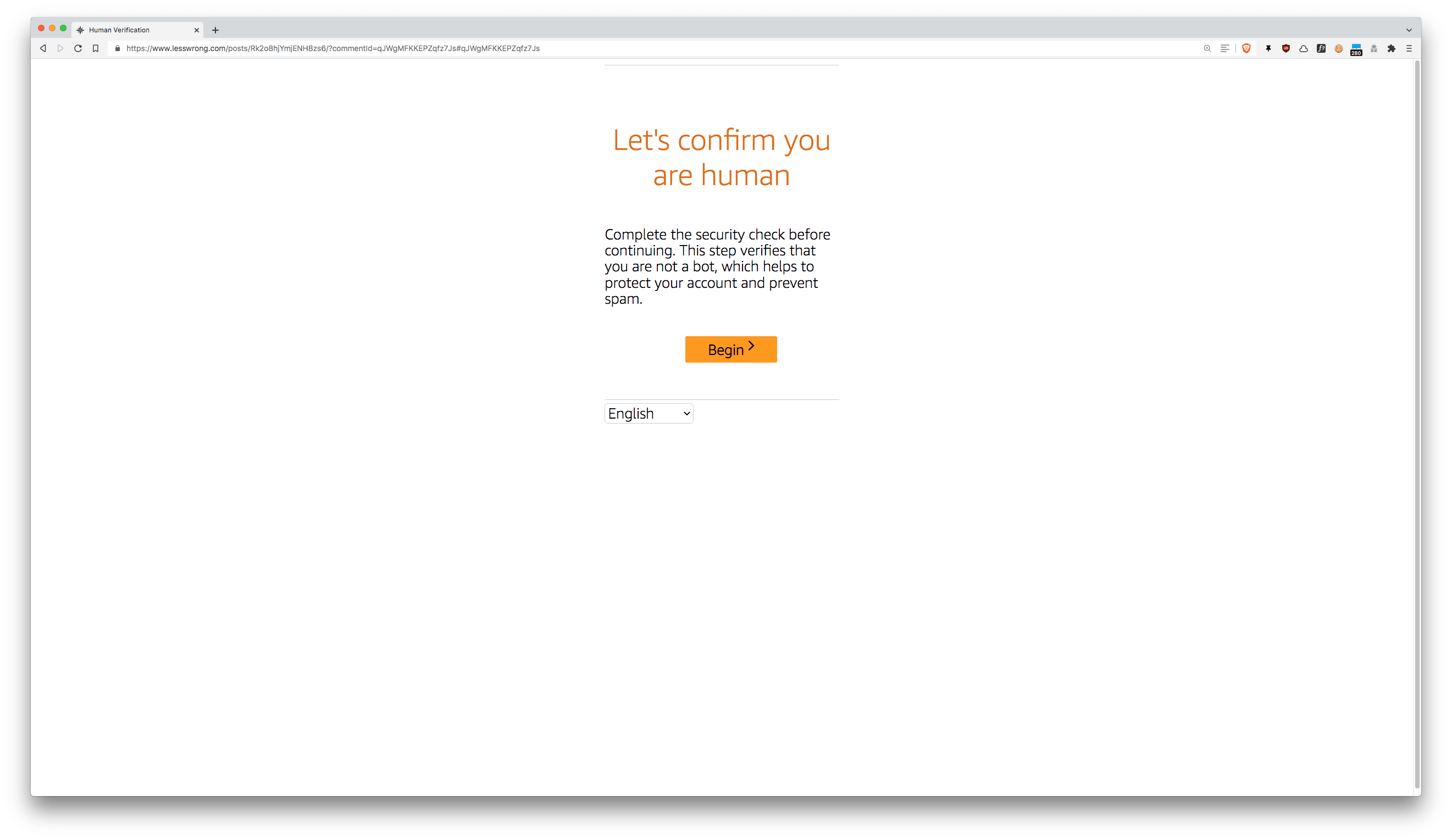If it’s worth saying, but not worth its own post, here's a place to put it.
If you are new to LessWrong, here's the place to introduce yourself. Personal stories, anecdotes, or just general comments on how you found us and what you hope to get from the site and community are invited. This is also the place to discuss feature requests and other ideas you have for the site, if you don't want to write a full top-level post.
If you're new to the community, you can start reading the Highlights from the Sequences, a collection of posts about the core ideas of LessWrong.
If you want to explore the community more, I recommend reading the Library, checking recent Curated posts, seeing if there are any meetups in your area, and checking out the Getting Started section of the LessWrong FAQ. If you want to orient to the content on the site, you can also check out the Concepts section.
The Open Thread tag is here. The Open Thread sequence is here.






I’m confused by your response. It seems like you got the impression that I was questioning your claim to have ADHD, but of course I was doing no such thing; I have no reason to doubt your word on this. Nor am I “advising” you to do anything.
The purpose of my comment was neither to offer assistance, nor to “deflect blame”. The purpose, rather, was only and exactly to ask the question that I asked—which, again, is: what is causing the “treat the ADHD” solution to be insufficient? As I understand it, a successful treatment for ADHD would result in being able to do things like read Less Wrong posts without too much difficulty.[1]
Of course you’re under no obligation to respond. But if you don’t engage with questions like this, how can we solve these purported problems which you are describing? Understanding a problem is the first step toward solving it.
FWIW, I am perfectly familiar with the experience of being unable to perform various tasks while suffering from the effects of cognitive difficulties, and then, when those difficulties are treated, having no trouble doing those tasks. Of course I don’t assume that our situations are the same, or similar, but the point is that if there is some difficulty preventing a person from doing something, and it that difficulty is successfully treated, then that person should now be able to do that thing, otherwise the treatment was not successful by definition. ↩︎